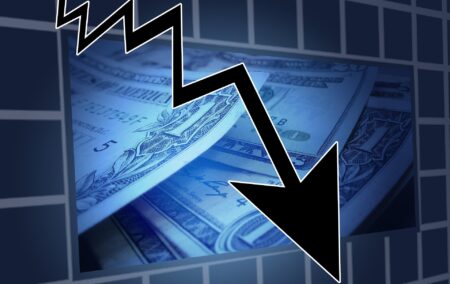Three weeks ago, Minister of Finance Tito Mboweni delivered his supplementary budget to a chorus of calls for a post-Covid-19 economic recovery plan. With South Africa projected to endure a heavy economic blow, fiscal prudence has become paramount.
Earlier this month, a group of 100 economists called on parliament to reject Minister Mboweni’s supplementary budget, calling for greater rather than less government expenditure in the face of South Africa’s post-pandemic economic crisis, and claiming that budget cuts would result in economic stagnation.
But to paint the picture as a straight choice between austerity and growth is intellectually dishonest. The reality is that, whatever plan is implemented to resolve the debt crisis South Africa is in, the effects will be painful for one side or the other. The real choice is between pain followed by gain, or pain followed by pain.
In the face of the pandemic, a modest increase in government debt seems sensible, and a number of countries around the world have implemented stimulus packages to ameliorate the economic conditions caused by the Covid-19 crisis. The South African government has also created what it considers to be a ‘stimulus package’ of R500 billion, even if this claim is somewhat dubious.
While modest expansions in debt for narrow and targeted expenditure could be considered excusable or even sensible, especially at a time of low interest rates, the worrying suggestion of the group of economists is that we should not be fretting about bringing down deficits and debt.
Untenable debt levels
Greece is an example of a country that mismanaged its debt subsequent to the 2008 financial crisis, and is still dealing with the burdens of untenable debt levels more than a decade later. When it was spending borrowed money, it thought debt was not an issue. Anyone with some knowledge of Greece’s debt crisis, as well as that of Argentina, which has defaulted on its own debt, must know that untenable debt levels become obstacles that smother the private sector, stifle enterprise and growth, and cause economic stagnation.
So, the suggestion that we should not worry about our debt situation is blinkered and dangerous, particularly as South Africa has been pursuing an untenable debt path over the past decade and has saddled itself with an unsustainable debt-to-GDP ratio. To add billions more to debt would, as the Greek experience shows, plant the seeds of economic ruin. As beautiful as some Grecian ruins might be, the debt crisis implicit in the recommendations of these 100 economists would risk unleashing a host of socio-economic evils.
Big spenders
The economists’ response would likely be that expanding the deficit through more government spending might be great news for economic growth. They may further argue that there is very little empirical evidence to suggest that budget deficits stifle economic growth as such – so why shouldn’t we spend more? If anything, the big spenders say, it can only benefit an economy once it falls below its average growth path.
The problem is that reality comes biting. Widening deficits historically have monetary consequences, culminating in the unleashing of potent inflationary forces. No economic qualification can prevent the reality of dangerously high debt circling back in the form of higher taxes or new, parasitic schemes to fund government expenditure. An example of this is the government’s increasing appetite to amend the regulatory framework to make way for asset prescription.
There is no getting away from the burdensome impact of government expenditure built on short-sighted indulgence of debt. The more government spends, the more it has to borrow, and, in order to pay it back in the future, the more the taxpayer will have to pay.
When Keynesians claim that deficit spending is imperative, they demand that current governments should be supported at the expense of future taxpayers. And to what end? There are no shortcuts to economic growth, and government spending in and of itself offers no solution to economic stagnation.
Minister Mboweni is quite right when he says: ‘The belief that we can spend our way out of low growth is inconsistent with the best available empirical evidence and ignores South Africa’s recent poor performance in using government spending as a tool to unlock much-needed economic growth.’
An outcome, not a policy
Economic growth is an outcome, not a policy. The question is: how do we get there?
The complexities of economics often obscure the truth that there simply is no such thing as a free lunch.
Only educated economists would seek to deny it, but, in the here and now, there is no way out of our dire economic situation without a return to fiscal prudence and urgent and drastic implementation of pro-growth policies.
If you like what you have just read, subscribe to the Daily Friend

